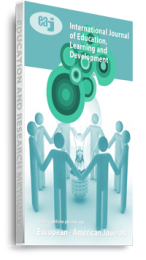This study investigates parental gender biases and their influence on the educational and socioeconomic development of children, with a focus on the girl child in Ilesa West Local Government Area of Osun State, Nigeria. The research aims to assess how parental attitudes, particularly favouritism towards male children, affect access to education and future opportunities for the female gender. It also explores the extent of marginalisation faced by girls and the strategies that can be adopted to empower them as active contributors to national development. A descriptive research design was employed, and data was gathered using a researcher-developed questionnaire, which was administered to 150 randomly selected parents and guardians in the study area. The instrument had a high reliability coefficient of 0.893. The questionnaire addressed parental attitudes, marginalisation of the female gender, and possible empowerment strategies. Findings revealed that poverty, parental occupation, religious beliefs, and cultural backgrounds significantly influence gender-based discrimination in education. Respondents acknowledged the existence of discriminatory practices that prioritise male education while neglecting the girl child. However, many showed reluctance in accepting the empowerment of the girl child as a viable societal contributor. Despite this, there was support for mentoring young girls through exposure to successful female role models. The study concludes that deeply rooted cultural and social biases continue to impede gender equality. It recommends stronger legal enforcement against educational neglect, merit-based opportunities irrespective of gender, advocacy by successful women, and broader sensitisation through religious and community
Keywords: Development, Educational, Gender, Socioeconomic, biases

